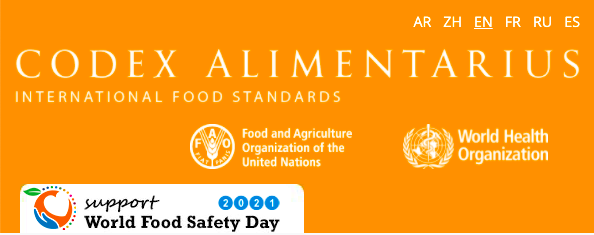
TOOL
Codex Alimentarius
English
Agriculture is affected by climate change, but it is also the key to addressing it.
The effects of climate change, such as rising surface and ocean temperature and increasing extreme weather events can impact on all aspects of food systems and result in impaired food security. These impacts include effects on food production, increased food prices, and reduced access to a diverse, healthy diet.
At the same time, pollutants attributable to the agricultural systems drive climate change, make staple crops less nutritious, and impact human health. The consumption of healthy and sustainable diets can simultaneously reduce GHG emissions from food systems and improve health outcomes.
The outputs of agriculture – plants and animals, are critical determinants of human health, both through the nutrition they provide and in some cases, the diseases they transmit.
When agricultural systems are negatively impacted by weather, climate change and environmental degradation, food security is compromised and human health can be impacted in several ways:
The IPCC estimates that 21–37% of total greenhouse gas (GHG) emissions are attributable to agriculture. This estimate includes emissions of 9–14% from crop and livestock activities within the farm, 5–14% from land use and land-use change including deforestation and peatland degradation, and 5–10% from supply chain activities, as well as GHG emissions from food loss and waste.
Without intervention, total GHG emissions are likely to increase by about 30–40% by 2050, due to increasing demand based on population, income growth and dietary change.
Climate change is already affecting food security, through increased temperatures, changing precipitation patterns, and greater frequency of some extreme events impairing food availability, access, use and the stability of these over time.
The higher frequency of heatwave days and drought months in 2022, compared to 1981–2010, was associated with 151 million more people experiencing moderate or severe food insecurity across 124 countries.1 12024 Report of the Lancet Countdown
Experts have high confidence that food security will be increasingly affected by projected future climate change.
Availability
Globally, overall food production and agriculture is expected to be negatively impacted by climate change, including reduced yields of major crops such as rice, wheat, and maize. Climate change is also likely to reduce the productivity of fisheries in some regions; a major source of protein for some populations.2 2AR5 Porter et. al. 2014, Myers et al. 2017; Savage et al. 2020
Vulnerability of pastoral systems to climate change is also high. Pastoralism is practiced in more than 75% of countries, by between 200 and 500 million people. Impacts in pastoral systems in Africa include lower pasture and animal productivity, damaged reproductive function, and biodiversity loss. Pastoral system vulnerability is exacerbated by non-climate factors (land tenure, sedentarisation, changes in traditional institutions, invasive species, lack of markets, and conflicts).
With climate change, distributions of pests and diseases will also change, affecting production in many regions. Given increasing extreme events and interconnectedness, the risks of disruptions to the food system are growing.
Access
As a result of climate change, rising food prices will impact food security. The IPCC predicts a 1–29% cereal price increase in 2050 due to climate change, which would impact consumers globally. Low-income consumers and countries with high food imports, such as small island developing states, are particularly at risk, with models projecting increases of 1–183 million additional people at risk of hunger.
Use / Nutrition
While increased CO2 is projected to be beneficial for crop productivity at lower temperature increases, it is also projected to lower nutritional quality. For example, wheat grown at 546–586 ppm CO2 has 5.9–12.7% less protein, 3.7–6.5% less zinc, and 5.2–7.5% less iron.
Declines in the availability of food, limits on small-scale agricultural production due to less favourable growing conditions and unpredictable seasons, and scarcity of water or labour resulting from climate change, could adversely affect nutrition. Many impacts of climate change on nutrition are likely to be felt indirectly, through its effects on income and livelihoods and the capacity to access a diversity of food.
GHG emissions can be reduced and agricultural system resilience enhanced by combining supply-side actions such as efficient production, transportation, and processing, with demand-side interventions such as modification of food choices and the reduction of food loss and waste.
Protecting local food supplies, assets and livelihoods against the effects of increasing weather and climate variability and increased frequency and intensity of extreme events can be achieved through:
Research
EN
Research
EN
Research
EN